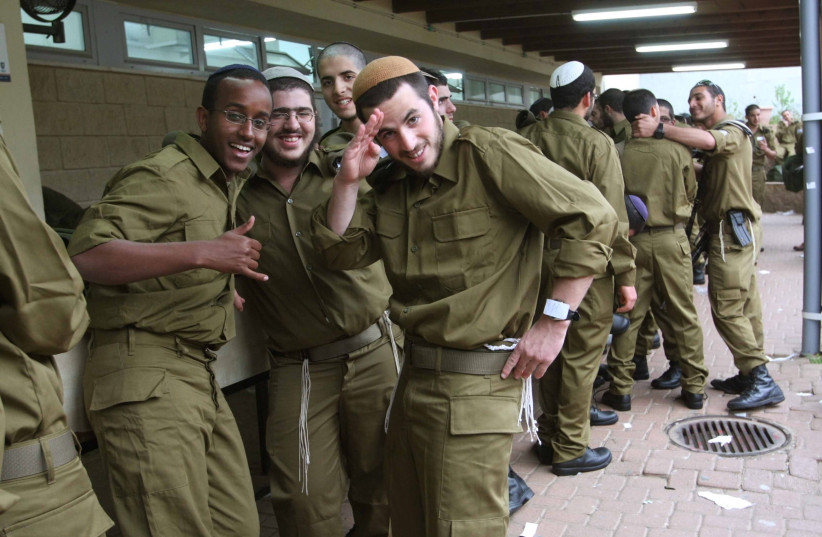Israel need not wait for a state commission of inquiry to release its findings and recommendations stemming from the October 7 massacre to understand one thing: the IDF needs to grow.
With enemies surrounding the state who, on October 7, revealed their intention to invade, murder, rape, mutilate, and pillage, the country needs a big, well-trained army to prevent them from carrying out their savage plans.
Simply put, Israel needs boots on the ground – lots of them. When the dust settles after this war, and evacuated residents of the North and the western Negev return home, they will need to know that there are not just a few battalions patrolling the border merely a few meters away, but rather full divisions of soldiers doing the job.
Of all the security doctrines that collapsed on October 7, this is one that need not wait for the country’s security mavens to render judgment on before being unceremoniously cast aside: that all Israel needs is a small, professional army leaning heavily on technological bells and whistles.
Does Israel need all those technological bells and whistles, the high-tech fences and super-sensitive sensor systems? Certainly. But it also needs more personnel.

The IDF needs Haredim
The IDF needs soldiers: lots of them. Men and women, conscripts and reservists, and—yes—Haredim.
It needs them to patrol and guard and lay in ambush – the old-fashioned way. If October 7 did anything, it proved that over-reliance on high-tech solutions for security is a recipe for disaster.
The IDF on Sunday revealed plans that indicated it has internalized the need for more boots on the ground. In order to get them, it is recommending that the country’s laws be changed to extend mandatory service for men from 32 to 36 months, raise the age limit for serving in the reserves from 40 to 45, to 50 for officers, and to double, triple, and even quadruple the amount of time each reservist will need to serve each year.
These are dramatic changes that will have an enormous impact on the lives of the reservists and their families. And they are being done because the size of the army right now does not meet the requirements necessary to keep this country’s citizens safe and protected – all its citizens.
All its citizens, therefore, need to bear the burden of the onerous, life-disrupting, and dangerous chore of military duty. While there are obvious extenuating circumstances preventing the army from mobilizing the Arab sector – though they should be obliged to do community service instead – those same circumstances do not exist when it comes to the ultra-Orthodox.
The haredi population – which stands today at about 13% – is part of the fabric of Israeli society. They enjoy life in a Jewish state where they can live by the dictates of their conscience inside borders that are secure and protected. As such, they need to help secure and protect these borders.
October 7 proved that Israel simply does not have the luxury anymore to exempt such a large part of the population from military duty. Continuing to do so endangers everyone’s security.
The nation was captivated at the beginning of this war by reports that haredi men exempted from army service were showing up at recruitment offices and asking to volunteer. Finally, many thought, the penny dropped as the sheer brutality of October 7 convinced the haredim that they too needed to carry weapons and risk their lives for the collective; that it was immoral to only expect others to do that for them.
What many hoped would be a wave of haredi enlistment turned out to be a mere ripple. All told, about 430 haredi men, mostly between the ages of 30-40, signed on for basic training, truncated IDF service, followed by reserve duty. They are to be applauded, as are the haredi who volunteer for Zaka-duty that should be recognized as military service.
But there needs to be more, much more. And the initiative should come from the haredi public itself. What is needed now is for courageous rabbis from within haredi society to stand up against the prevailing current in their communities and say that given Israel’s security needs, it is imperative – absolutely imperative – that haredi men join everyone else in literally defending the borders.
This is now no less than a matter that touches on Israel’s physical survival – October 7 proved that.
